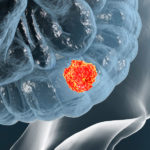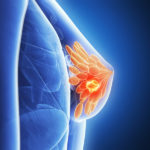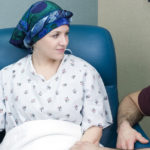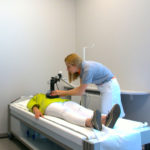 Wróć do poprzedniej strony
Wróć do poprzedniej strony
Endometriosis – causes, symptoms, treatment
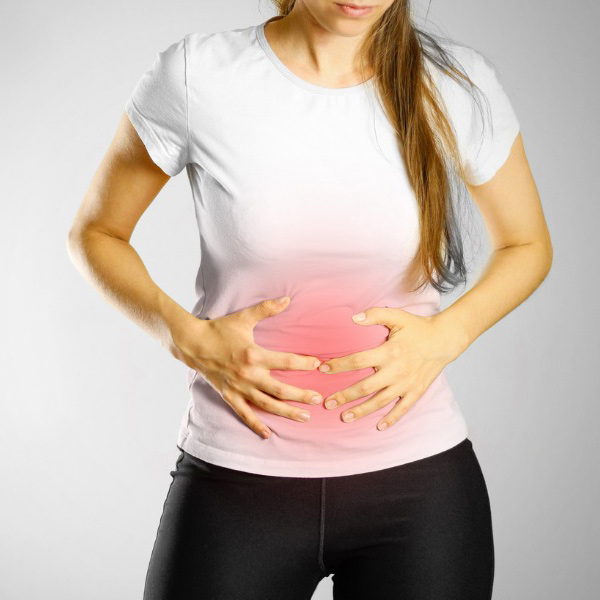
Endometriosis is characterised by uncomfortable pain in the pelvic area, which often accompanies menstruation. However, it can also occur regardless of the phase of the cycle. In many cases, the pain is so intractable that it completely disrupts daily life. The substrate of endometriosis is the growth of the endometrium outside the uterine cavity, such as in the peritoneal cavity.
Treatment of Endometriosis
Integrative Care
At IMC, you will benefit from Integrative Chronic Diseases Care designed to speed up physical and emotional recovery, improve quality of life, better tolerate treatment-related side effects and prevent relapse.
An integrative program for chronic diseases treatment can be applied to start from the initial to the advanced stages of chronic diseases, even during the phases when conventional medicine has nothing more to offer. The first step of the integrative approach is a precise and detailed assessment of the patient’s physical, emotional, and body state. The doctor collects the results of biochemical tests, molecular tests, clinical examinations, information about other illnesses, lifestyle, diet, and emotional state. Since the patient’s biological state changes during therapy, the treatment program is updated according to the laboratory and clinical tests. Every aspect of the treatment program is personalized to suit each patient’s individual needs.
Treatment includes:
- integrative medical consultation and monitoring,
- ten sessions of local hyperthermia,
- ozone therapy (autochem transfusions),
- intravenous vitamin infusions,
- ultrasound,
- laboratory tests,
- psychotherapy,
- group workshops such as mindfulness, breathing,
- personalized nutrition,
- and accommodation.
Contact us:
1. Call us: +48 730 597 597
2. Send application form
- Go to Natural chronic diseases treatment
- At the bottom of the page, select your disease
- Complete the form, and we will contact you
What is endometriosis?
Endometriosis, or endometrial adenomyosis or wandering endometrium, is a disease with an underlying proliferation of the endometrium outside the uterine cavity. It can be imagined as islands of the endometrium, scattered over various organs where they do not occur under physiological conditions. „Islets” most commonly occur in the peritoneal cavity. Less frequently, they are found in other locations (e.g. in the vaginal vault).
Nodules and adhesions may form within them as a result of inflammation. In simpler terms, in women with a regular menstrual cycle, the mucous membrane builds up in the uterus for three weeks and then flakes off during menstruation. However, in a group of women, a situation arises where some of the endometrial cells, together with the menstrual blood, inadvertently enter the fallopian tubes and escape through them into the abdominal cavity.
The cells can reach the ovaries, peritoneum, intestines, and even the walls of the bladder, staying there forever. This is what is known as endometriosis, or wandering uterine mucosa. The problem of endometriosis affects the vast majority of women – most often of reproductive age. It is estimated that this condition occurs in 5-7% of women. In 75% of cases, it affects young patients, aged 30-40 years. However, isolated cases of endometriosis in men undergoing hormonal treatment for prostate cancer have been described.
Causes of endometriosis
The causes of endometriosis, despite being known for more than two hundred years, are not fully known. However, there are several theories on the subject. One is that during menstruation – especially heavy menstruation – the menstrual blood together with the endometrial cells enter retrospectively into the abdominal cavity (peritoneum). There, the endometrial cells settle in and begin to live their own life outside the uterine cavity.
Another theory is that endometriosis has a genetic basis and is linked to hormonal and immunological disorders. Endometriosis is more likely to affect women whose mothers, sisters or grandmothers also struggled with the condition.
Endometriosis - symptoms
The most characteristic symptom of endometriosis is pain that occurs regularly. It is usually located in the groin, in the pit of the abdomen, and even sometimes in the anal area. The pain can be very troublesome and appears and disappears with or just before menstruation. In addition, endometriosis makes periods very painful, long, and unfortunately heavy. Many patients complain of pain during sexual intercourse and, in rare cases, of intermenstrual spotting and traces of blood in the stool and urine. Of course, stray endometrium in the bowels or bladder can cause pain during micturition and defecation.
The blood that accumulates in the course of endometriosis has no outlet, as a result of which adhesions and chocolate cysts form. It should be mentioned that the symptoms of endometriosis can sometimes be difficult to diagnose, as the ailment can produce very different symptoms of varying severity.
In summary, pain associated with endometriosis can be experienced:
- before, during or after menstruation,
- during ovulation (ovulation),
- during urination,
- during or after sexual intercourse.
In addition to the pelvic region, it can also localize in the lower back.
In addition, other additional symptoms of endometriosis may also appear:
- diarrhoea or constipation (in some cases these may occur during a specific phase of the monthly cycle),
- repeated flatulence,
- non-menstrual bleeding from the genital tract,
- a feeling of weakness.
Often the most serious symptom of endometriosis is infertility. It has been shown that endometriosis occurs in one in three women who have trouble getting pregnant. Of course, it is important to stress that not every woman diagnosed with endometriosis will have trouble getting pregnant in the future. Roughly 30 percent of women are affected. It is suspected that in some women, endometriosis foci occur as a result of other causes of infertility, such as hormonal imbalances.
Endometriosis causes fertility disorders in two ways: firstly, women with endometriosis often have adhesions in the abdominal cavity and inside the uterus, so fertilization and the eggs reaching the uterus is difficult. Secondly, foci of endometriosis can secrete a substance and enzymes that unfortunately hinder the process of fertilization and the proper implantation of the egg.
Contact information
55-010 Żerniki Wrocławskie
Working hours
Have a question?
Use the quick contact form!
Contact information
55-010 Żerniki Wrocławskie
